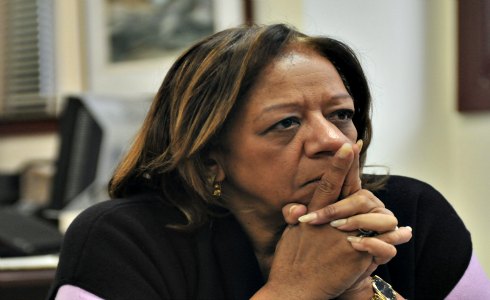
By Kathy Chaney
Barbara Byrd-Bennett’s seat is just getting warm. The New York native, who held the district’s Chief Education Officer post for the last six months, was tapped to succeed Jean-Claude Brizard as head of Chicago Public Schools. Having held similar posts in New York, Detroit and Cleveland, Byrd-Bennett said she’s up to the challenge of leading the nation’s third largest school district. She spoke with the Chicago Defender about the new job she said she’s in for the long haul.
Chicago Defender: You’ve been behind the scenes mostly as Chief Education Officer and now you’re in the spotlight as CEO. What do you want Chicago to know?
Barbara Byrd-Bennett: We have a heck of a lot of work to do. It’s more than about a school system. It’s redeveloping a bruised system and building trust. My ego isn’t fragile and a CEO can’t do it alone.
CD: How will you gain the trust of the parents and the community?
B3: I’ve always been one to be visible. I come in the community. I visit schools. I interact with the faith-based community. I know the business leaders. They all have a stake in our children. In New York, Detroit and Cleveland, I’ve done all of that. I’ve attended school games. I’m sitting in the stands with everyone else. When I visit schools, I talk to the principals, but, I don’t want to spend my entire visit in the principal’s office. I want to walk around. I want to see the students and talk to them. I’m interested in what they’re working on.
CD: How do you plant o navigate Chicago’s political minefield?
B3: I won’t pretend to be arrogant. I’m not a politician. I’m here for the children.
CD: The talk of school closures came up during the Chicago Teachers Union negotiations and after the contract was ratified. What do the parents need to know about the possibility of schools closing?
B3: I put a pause on that conversation because I wasn’t at the table.
CD: How will you get to know the students and engage them?
B3: Talking to the students on a regular basis and getting to know what they want. When I talk to students, the consensus is they want better access to technology. They want specific classes. They want more time in school. You have to engage the students in a way so they can feel like they’re part of the process. We do all of this for them. They know what they want. I want to meet more with students and develop a student advisory board. We’ll be working on that; selecting two students from each high school. They should be at the table letting us know what can make them better students.


